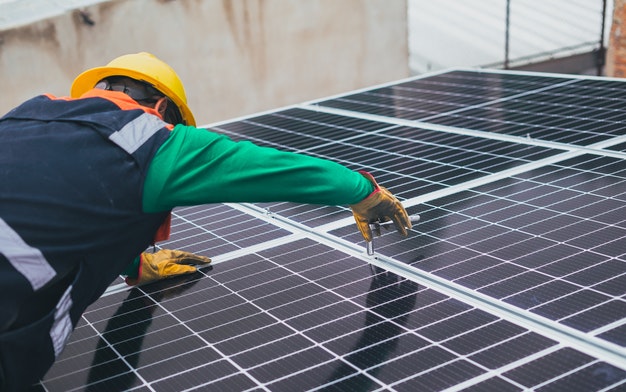If you’re thinking of going solar in Phoenix, AZ, this is one of the best home upgrades. The city enjoys a lot of sunshine throughout the year, making it a perfect place to harness solar energy. What’s more, the cost of solar panels and hardware continues to fall with more favorable renewable energy policies. Arizona also has multiple solar energy incentives, which makes solar energy installation a smart investment.
With a solar panel system, you’ll save money on the biggest item in your home maintenance. What’s more, solar energy boosts your property’s value and helps cut harmful emissions. This is a long-term investment that keeps on paying back.
But how do you get started? Many property owners miss out on the incredible benefits of solar energy because they don’t have the right information. In this post, find out some simple steps to follow to go solar in Phoenix, Arizona.
1. Do Your Research
Solar panel installation is a massive investment and requires a lot of research. If you’re to install a solar panel system size of 5 kilowatts (kW), the average solar panel project would range from $10,752 to $14,548.This is a lot of money and you don’t want to make any mistakes.
Start with dedicated research to understand the potential of solar in Phoenix, AZ, the availability of solar installers, and the most reputable installation companies. Create a shortlist of the best solar companies by reading reviews and testimonials and even seeking referrals from other homeowners. Make sure your solar installer carries a residential and commercial general contracting or a remodeling license.
2. Schedule Consultation/Quote
Once you have a shortlist of the best solar installers, call them to schedule consultations. The most reliable solar installers in Phoenix will offer a free no-obligation, on-site estimate. A full walk-through and inspection is the only way to get a comprehensive quote.
The solar installer wants to see the property and will ask questions about your electricity bill, your needs from the solar panel system, whether you wish to sell the property in the future, and other things. The comprehensive questioning and inspection help the solar company design the best system to suit your needs. They can also propose leasing or give financing options based on what they deduce from the consultations.
3. Project Assessment
The solar installer sends an expert to assess your home, inspect the roof, assess any shade or anything that blocks the sun, and carry out an energy evaluation to determine your needs. This evaluation gives the solar installer critical data to design the project. They’ll communicate this information in form of a report. This is a good stage to build a strong relationship with the solar contractor.
4. Solar System Design/Licensing
After an assessment of your home’s energy needs, the solar installer designs a custom project to suit your home. Your input is critical at this stage. The solar panel array affects the aesthetics of your home and you should have a say in it. More importantly, you’ll need a building permit for the solar system installation. The local authorities (counties and municipalities) award these permits and your solar installer will help to apply for one.
5. Solar Panel Installation
After designing the project, installation is the next step and your installer will update you on what they need. The site should be secured to avoid any accidents. You’ll need to grant access to your home for roof panel installation and wiring. The length of time taken depends on the size of the roof panel installation.
6. Inspection
After installation, the local authorities inspect the system to confirm it conforms to the building code. You might also need a connection to the grid and the commissioning of the project.
Ready to leverage the benefits of solar in Phoenix, AZ? Contact with reliable solar installer Solar Ecosystem Today.

